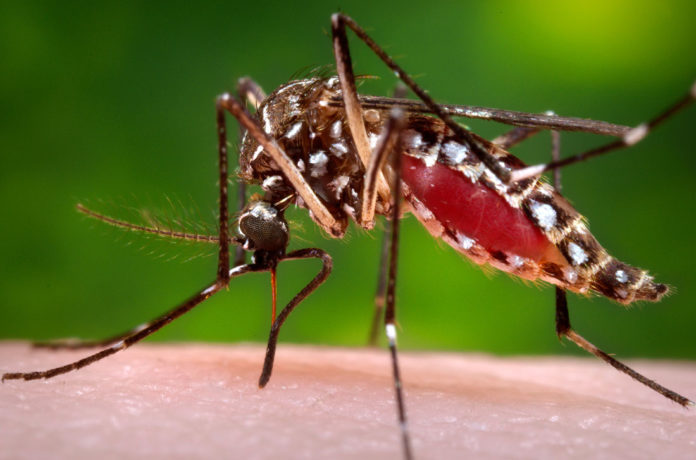
Santa Clara County health officials on Aug. 14 reported the first local death attributed to West Nile virus, a mosquito-borne illness.
The death this month of an immunocompromised adult at a local hospital “after experiencing West Nile virus symptoms” is the second reported human case of the potentially deadly virus in Santa Clara County.
The county Public Health Department reported that the other infected individual is an adult who was hospitalized but is now recovering at home. Health officials said there is no known connection between the two individuals. For reasons of medical privacy, no additional details about either individual were released by the county.
Officials have not determined if the infections occurred in Santa Clara County or elsewhere. County Vector Control said it has detected West Nile virus-positive mosquitos in various county locations and “has been performing targeted treatment to reduce the adult mosquito population.”
Because both infected individuals are Santa Clara County residents, the illnesses were reported to the county Public Health Department.
Health officials said the West Nile virus is a mosquito-borne disease that causes mild to severe flu-like symptoms such as fever, headache, body aches, and in severe cases, neurological symptoms or even death. Most people who contract the virus have mild or no symptoms and will recover quickly.
“The risk of serious illness from West Nile virus is low for most people,” the department said in a press release. It warned, however, that people over 60 years of age and those with certain medical conditions have a higher chance of getting sick and are more likely to develop complications.
The county said residents can help reduce the risk of West Nile virus by draining standing water, such as flowerpots, and following other prevention recommendations from County of Santa Clara Vector Control. More information about West Nile virus in California is available from the Centers for Disease Control, the State of California and the County of Santa Clara Vector Control District.







